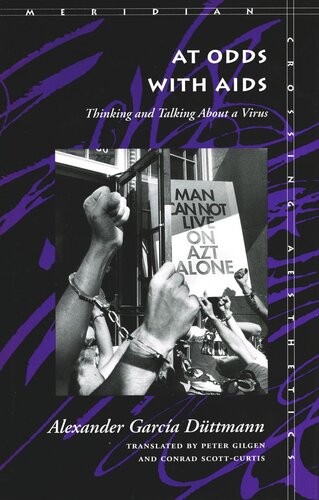

Most ebook files are in PDF format, so you can easily read them using various software such as Foxit Reader or directly on the Google Chrome browser.
Some ebook files are released by publishers in other formats such as .awz, .mobi, .epub, .fb2, etc. You may need to install specific software to read these formats on mobile/PC, such as Calibre.
Please read the tutorial at this link: https://ebookbell.com/faq
We offer FREE conversion to the popular formats you request; however, this may take some time. Therefore, right after payment, please email us, and we will try to provide the service as quickly as possible.
For some exceptional file formats or broken links (if any), please refrain from opening any disputes. Instead, email us first, and we will try to assist within a maximum of 6 hours.
EbookBell Team

4.0
56 reviewsWhat does it mean to oppose AIDS, to be at odds with AIDS? What kind of rupture with history does AIDS represent? How does AIDS and what is said about AIDS relate to gay identity? How does AIDS relate to thinking and acting, particularly deconstructive thinking? The author confronts these questions from a broad philosophical background that ranges from Kant, Nietzsche, Kierkegaard, and Heidegger to contemporary thought concerning gay activism and AIDS research, all brought together in an effort to find a philosophical language capable of doing justice to the singularity of lived experience in the shadow of AIDS. In examining what AIDS reveals about the conditions of existence, García Düttmann develops the idea of the “dis-unity” or “at-odds-ness” of existence, of the “non-belonging” that characterizes the marginalized, outcast, or abandoned, and exposes human existence itself. He analyzes what AIDS reveals about the character of history through two intertwined issues. First, he examines arguments bearing on the epochal significance of AIDS, the idea that AIDS reveals something uniquely characteristic of our time, hence that the epidemic marks a historical caesura. Second, he develops a theory of historical witnessing suggesting that the phenomena of historical event and bearing witness are not at all separate, but instead are co-originary, inhering in the same complex.